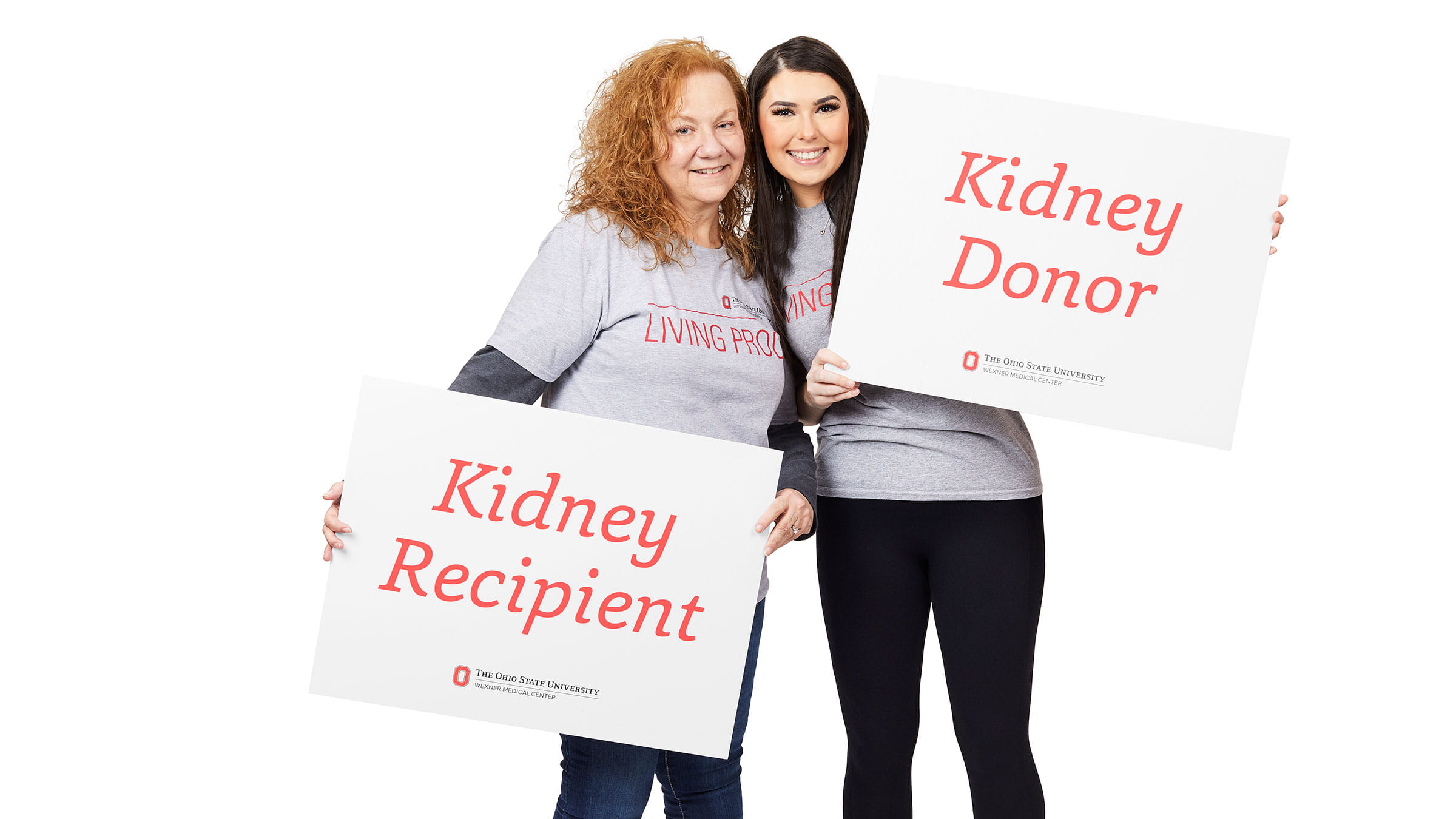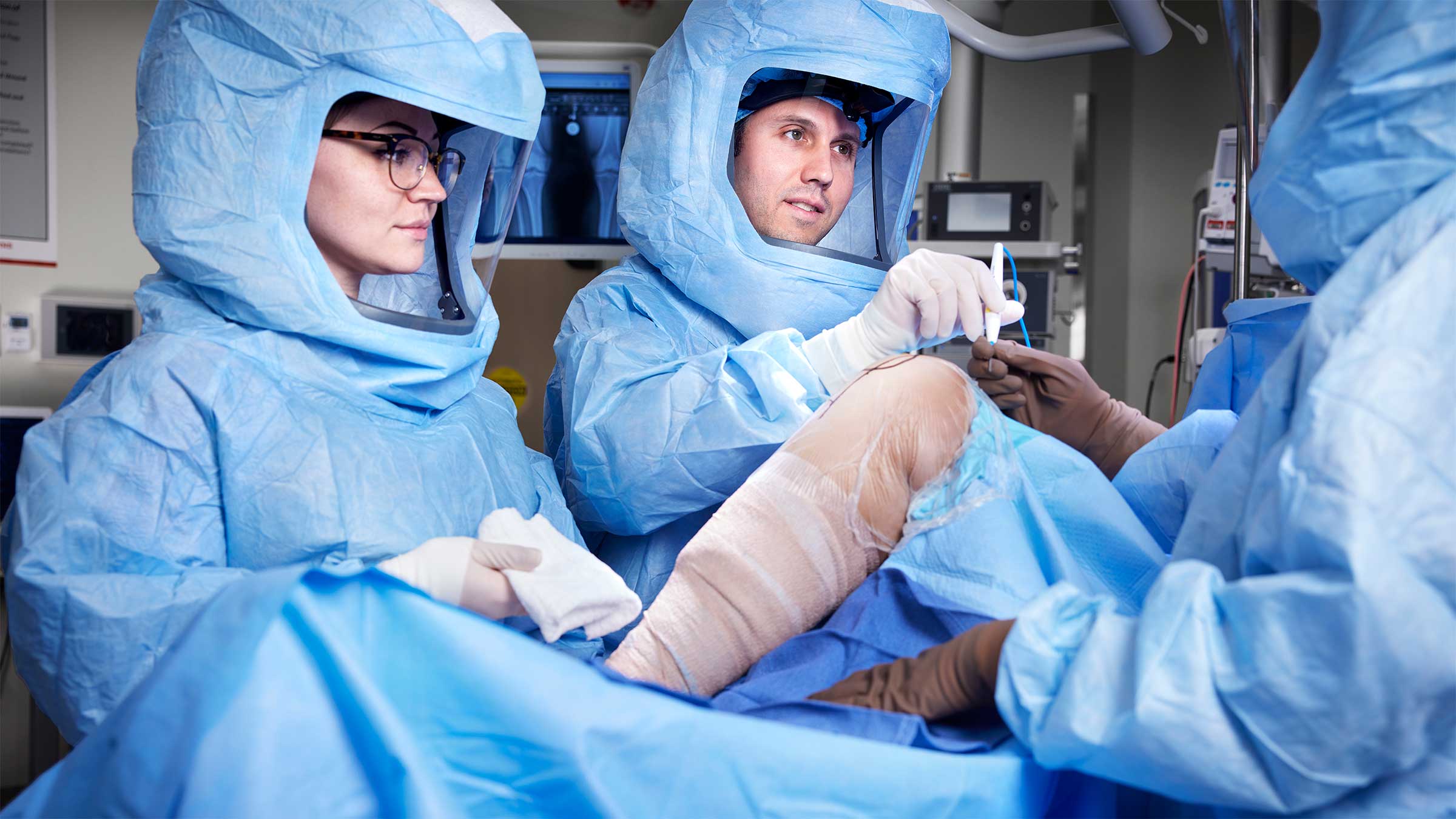
Being diagnosed with kidney failure comes with many challenges. Medications, dialysis, the physical and emotional exhaustion. It’s all the more difficult if you develop end-stage kidney disease and need a kidney transplant.
For these individuals, there are only three treatment options:
- Dialysis
- Kidney transplant from a deceased donor
- Kidney transplant from a living donor
The best and fastest option for a patient in need of a kidney transplant is to receive a kidney from a living donor. Donating a kidney — becoming a living donor — is a selfless act that can improve or save the life of a person with advanced or end-stage kidney disease.
But that’s a HUGE request. In fact, the thought of asking someone for an organ is so overwhelming that more than half of all people in need of a kidney transplant don’t even try. They don’t even ask one person. At the same time, your friends and family members are often eager to help you spread the word or consider donation themselves.
Taking that first step is hard, but it’s important. I’ve put together this checklist to help you get started:
Share the news with your inner circle
To begin identifying potential living donors, it’s easier to start with people who are closest to you. If you feel you can’t find the words for a face-to-face conversation, an email can help you organize your thoughts. Each conversation you have will make you more confident to speak with others.
Explain your diagnosis, and the story that leads up to it, if that helps.
Explain why a kidney from a living donor is your best option.
Let them know that you understand living donation may not be an option for everyone and acknowledge that your relationship will not change if they choose not to donate.
Choose a donor champion
It’s not a surprise that finding a living donor can be overwhelming. To help you identify potential living donors, find a family member or close friend who can be your living kidney donor champion. With the enormous physical and emotional toll of living with end-stage kidney disease, not to mention the exhaustion of dialysis treatment, removing the stress of finding a living donor can be a great help to you. Your donor champion will be your voice, helping you spread the word about your need for a donor kidney and sharing with others how the donation process works.
Your donor champion will also be the point of contact for anyone who wants more information about the process. This buffer can make it easier for people to come forward and ask for more information.
To be a donor champion, a person needs to be willing to:
- Learn about the kidney donation process
- Spread the word on social media, in social groups and in everyday conversations
- Serve as the point of contact for anyone requesting more information about donating to you and direct them to Ohio State's living donor questionnaire
Gather contact lists and details for potential donors
Make a list of all family members, friends and co-workers to contact. Prioritize family first; they have the best chance of being matches.
Direct family and friends to start the assessment process to be a living kidney donor by completing the online health assessment questionnaire.
Once completed, the information will be reviewed by our living donor team. Potential candidates that pass the online health assessment will be contacted directly by the team.
Start recruiting
You’ve shared your news, chosen your champion and gotten your materials in order. Now it’s time to get the word out. The sooner, the better.
Turn to social media. Facebook, Twitter, Instagram, YouTube, TikTok and other social networks make it easy to connect with friends (and friends of friends). They can help extend your reach much farther than you could on your own.
Post on online neighborhood or community sites. Create a flier to post in businesses around your neighborhood. Be sure to include your name, a brief summary of your story and web link to the donor health assessment.
Give family and friends information to post in bulletins at places of worship or in club newsletters.
Think outside the box. Ask friends to link to your Facebook page in their email signatures. Reach out to your local radio stations and ask if they can share your story. You can even write a donor request on your back windshield. It may sound extreme, but it has worked for others.
Don’t stop until you cross the finish line
When potential donors express interest, ask if they will consider taking a blood test to determine if they can donate to you. Even if they’re not a match for you, a paired exchange program is another option. Such a program can be useful if a donor finds they are not a compatible match with the intended recipient because their blood or tissue type does not match the recipient’s. If that happens, Ohio State’s Comprehensive Transplant Center can help match the donor/recipient pair with another donor/recipient pair and arrange for two transplantation surgeries to take place at the same time.
Before the surgery, keep a list of all potential donors and don’t stop recruiting until a week out from surgery. Have as many potential donors as possible willing to be tested in the event of an unforeseeable change with your primary donor.
Stay positive
It may get discouraging at times, and you may face setbacks, but keep going! Your donor is out there. Keep in mind that there’s no “right way” to communicate your need.
And remember, you don’t have to suffer in silence with kidney failure. People will help you. Ask!
Stay informed and stay educated
Before you begin talking about your need for a kidney, be informed about the living donation process.
If there are questions you can’t answer, please contact our living donor team at 614-293-6724, option 3, or email LivingDonor@osumc.edu.
For more tips on how to ask for a kidney donor, download our toolkit for kidney donation.

Ready to learn more about living kidney donation?
We've got all the information you need to start the process.
Learn more





